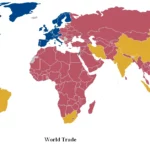An Unconventional Journey: Dominatrix to Democrat
Courtney Casgraux, a name largely unknown outside Oregon political circles, embarked on an unusual Congressional campaign in 2024. Her background as a former employee at Donatella’s Dungeon, a Manhattan BDSM club, became a central theme, intertwined with her progressive Democratic platform. This article explores Casgraux’s journey, her political positions, and the broader implications of her candidacy.
Early Life and Activism
While details about Casgraux’s early life remain somewhat scarce, her experiences growing up in California likely shaped her political views. Witnessing the struggles of families facing income inequality and limited access to social services probably instilled in her a deep sense of empathy and a desire for economic justice. This suggests that her progressive ideology may have roots in these formative years.
From Dungeon to Discourse: Reclaiming Her Narrative
Casgraux’s time at Donatella’s Dungeon, where she reportedly charged $500 per session, was more than just employment; it was an entrepreneurial endeavor. When a video from her time at the club surfaced online in November 2023, sparking a wave of both shock and curiosity, Casgraux chose to confront the situation head-on. Launching a Playboy profile, she aimed to “reclaim her sexuality” and challenge societal norms. This bold move raised questions about the intersection of personal history, sex work, and political ambition, igniting a public conversation about who gets to run for office. Some might interpret this as a savvy political tactic, while others see it as a genuine expression of self-acceptance. The truth likely involves a combination of both.
The 2024 Campaign: A Platform for Change
Casgraux’s 2024 campaign for Oregon’s 1st Congressional District centered on a progressive platform, advocating for social, racial, economic, and environmental justice. She emphasized the needs of the working class, promoting stronger communities, supporting small businesses, and creating job opportunities. Her platform also included destigmatizing sex work. Further research into her specific policy proposals would shed light on how she aimed to address these complex issues. It’s important to note that she launched her campaign before the video leak, suggesting a pre-existing commitment to public service. Her Instagram account (@cec_foruscongress) became a direct line to voters, bypassing traditional media. Did this strategy effectively reach her target audience? Further research could reveal the impact of her social media campaign. For readers interested in the financial aspects of media figures, you might want to explore articles on Claire McCaskill MSNBC salary.
Media Portrayal: Spotlight on Policy or Past?
Media coverage of Casgraux’s campaign varied significantly. Some outlets, like KATU, focused on her policy positions, while others, like The Daily Mail and The New York Post, emphasized her background in the sex industry. This disparity raises questions about media bias and its potential influence on voter perception. Did the focus on her past overshadow her political message? Analyzing the tone and framing of different media outlets could provide insights into this complex dynamic. Another intriguing figure in media is Danielle Jurinsky, whose story also invites further exploration.
Beyond the Ballot Box: A Catalyst for Conversation
Although Casgraux lost the Democratic primary on May 21, 2024, her candidacy sparked important dialogues about representation, economic justice, and the role of personal narratives in politics. Her willingness to openly discuss her past challenged traditional notions of political qualifications, contributing to a broader conversation about the changing face of American politics. Her campaign serves as a case study for exploring how personal histories can both enhance and hinder political aspirations in the 21st century. This raises questions about voter expectations: Are voters ready to embrace candidates with unconventional backgrounds? Does transparency about one’s past ultimately help or hurt a political campaign? These questions remain open for debate.
The Future of Representation: Casgraux’s Lasting Impact
Casgraux’s story, though unconventional, underscores the evolving nature of political engagement. Her campaign raises questions about the future of representation: Can individuals with diverse backgrounds, even those considered controversial, effectively serve the public? Does Casgraux’s campaign represent a shift in political acceptability, or is it an outlier? Further analysis could explore the long-term implications of her candidacy and its potential influence on future campaigns.
- Red Cloud, NE: Discover Willa Cather’s Legacy - April 11, 2025
- Remember Old Social Media Sites? Their Rise and Fall - April 11, 2025
- How many days till Feb 3?Accurate Countdowns & Tools - April 11, 2025
















